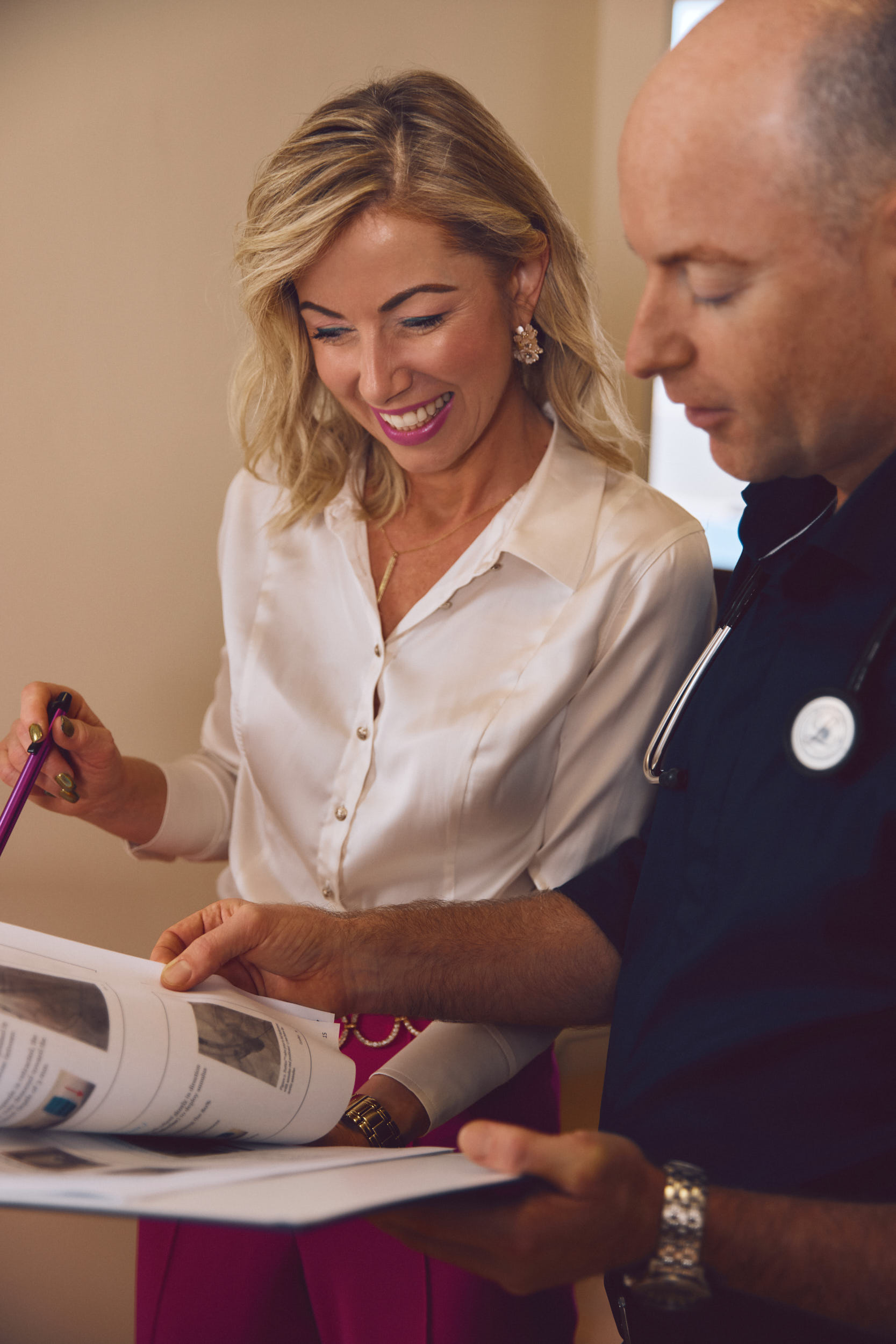Sunshine Coast Heart Doctor
We’re specialists in matters of the heart.About us
Oceanside Cardiology is a specialist cardiology clinic serving the people of the Sunshine Coast and Wide Bay Regions.
Dr Peter Larsen is one of Australia’s leading interventional cardiologists. Peter is a highly respected and experienced specialist who has been in private practice on the Sunshine Coast for the past 15 years.
Meet Your expert team


Locations
Vision
Purpose
Values

Our Story
“I wanted to establish a new clinic, where I could provide exceptional, innovative, and holistic care”.“The future of cardiac care is exciting. I want to make sure my patients have access to the latest investigations and treatments”.
Dr Larsen started working on the Sunshine Coast 25 years ago as a resident in the coronary care unit (CCU) and emergency department at Nambour General Hospital (NGH).
“Back then we had to stabilize heart attack patients and send them to Brisbane for specialist care. This “tyranny of distance” inspired me to become a Cardiologist. I was determined to improve the access to, and quality of cardiology services on the Sunshine Coast”.
After completing his specialist training in Boston, USA, Peter returned to NGH to establish the Cardiac Unit and acute heart attack service and thereafter has been a leading Cardiologist on the Sunshine Coast.
“In 2012 I performed the first acute heart attack angioplasty at NGH. Patients could now be looked after locally. This made a huge difference for the patient and their family.”
Peter has performed more than 20,000 cardiac procedures. He is a specialist in Cardiac CT, and is also a registered structural heart specialist performing TAVI and Mitral valve surgeries.
“We now can perform all advanced cardiac procedures on the Sunshine Coast.”
Services
Peter and Silvia consult across the Sunshine Coast and Wide Bay Region. Oceanside Cardiology has 6 practice locations.
We provide inpatient consultation and treatment at SCUPH and BPH and look after adult patients admitted with acute and chronic cardiac conditions. This collaboration allows for streamlined and efficient patient care and follow up with a focus on improved education and compassion trough the patient journey and follow up after Hospital discharge.
Silvia also is involved in the management and follow up of patients admitted for procedures in the Cardiac Catheter Laboratory (CCL) such as:
- Coronary angiography
- Left and Right Heart Catheterisation
- Percutaneous Coronary Intervention (PCI)
- Injectable Loop Recorder (ILR) insertion
- Hypertension Clinic
- TAVI
- Mitraclip
- Left Atrial Appendage Closure (LAAC)
Specialised Clinic designed to help patients with Heart Failure.
Silvia works with Dr Peter Larsen and other Physicians at SCUPH and BPH.
Silvia’s focus is on improving patient education, home management, and medication management by implementing evidence based pathways.
Specialised Clinic designed to help patients with valvular heart disease (eg. severe aortic stenosis, mitral regurgitation).
Silvia works with Dr Peter Larsen at SCUPH.
Silvia’s focus is on improving patient education, and assisting patients through their journey before, during and after hospitalisation. This clinic is designed for patients who are undergoing assessment for Structural Heart interventions including:
- Trans-catheter Aortic Valve Implantation (TAVI)
- Trans-catheter edge-to-edge valve repair (Mitra-clip, Tri-clip)
- Left Atrial Appendage Closure (LAAC)
- PFO/ASD closure
- Balloon valvuloplasty
Unique structured education program for patients with Cardiac Conditions.
Designed for patients recovering from a heart attack and for those who have undergone a cardiac procedure (eg. Coronary angioplasty+stent).
Our Cardiac Rehabilitation Program (CRP) is an innovative, evidenced based program that follows National Heart Foundation principles for best practice.
Oceanside Cardiology is involved in several clinical trials. We work with the University of the Sunshine Coast Clinical Trials Unit.
What are clinical trials?
Clinical trials are research investigations in which people volunteer to test new treatments, interventions, or tests as a means to prevent, detect, treat or manage various diseases or medical conditions. Clinical Trials assess how people respond to new interventions ensuring they are safe and effective in improving patient health and quality of life.
Clinical trials may also be used to determine whether an existing medicine can be safely and effectively used for other diseases and/or conditions.
Categories ‘phases’ of clinical trials
As a study medication goes through each phase of a clinical trial, researchers begin to know more about how participants respond to the medication, and any possible adverse reactions to the medication. An early phase study ie phase 1 study means it is being tested on humans for the first time.
With each phase of the study there is more data available for the assessment on the safety and efficacy of a new treatment/medication.
Phase 1 Studies are when a drug is tested in humans for the first time. The testing at this phase looks at the safety of a treatment – or any adverse side effects – as well as assessing dosing levels. These studies generally recruit a small group of healthy volunteers for a short period of time.
Phase 2 Studies test the efficacy of a treatment – or how well it works. These studies are generally done with a larger group of volunteers who have a specific illness. Often these studies have one group of participants receiving the study treatment and the other group receiving either a placebo or the current standard therapy for their illness.
Phase 3 Studies are large scale studies often involving several thousand volunteer participants. The aim is to gain a better understanding of the benefits and possible adverse reactions to the treatment on a larger scale and over a longer period. After successfully completing Phase III trials, a company can submit all the study data to the TGA for market approval.
Phase 4 Studies are conducted after a treatment has been approved for sale. Phase 4 allows companies and researchers to continue to monitor the treatment in the ‘real world’, as well as evaluate how it compares to other treatments available.
Benefits of participating in a clinical study
As a study medication goes through each phase of a clinical trial, researchers begin to know more about how participants respond to a treatment, and any possible adverse reactions to the treatment. An early phase study ie phase 1 study means it is being tested on humans for the first time.
With each phase of the study there is more data to the safety and efficacy of a new treatment/medication.
- Opportunity to access newest interventions, that may be better for your condition, before they are made available to the public.
- Opportunity to play an active role in your own health care and gain a greater understanding of your disease or condition.
- Receive advice, care and support from trained clinical staff that understand your disease or condition.
- Closer monitoring of your health, care and treatment.
- Professional care in a private practice at no cost.
Why do we need clinical trials?
Clinical trials are often a valuable option for people with rare or difficult to treat conditions for which there may be limited options of how the condition can be treated or managed, or when all existing treatment options for a person’s condition have been exhausted. There is no guarantee that any individual participant will receive any direct benefit from taking part in a trial.
Clinical trials are important because they serve as the foundation for most medical advances. Without clinical trials, many of the medical treatments and cures we have today wouldn’t exist.
Your SunShine coast based carDiologist
